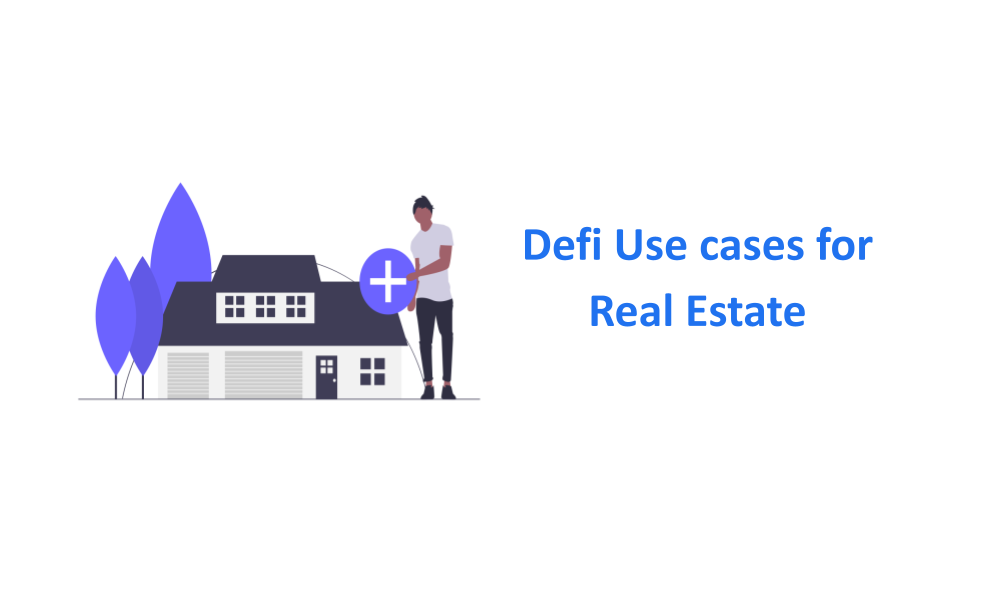Decentralisation: Re-defining user experience with financial products
In a bid to eliminate the hassles faced by the presence of intermediaries, decentralised finance (DeFi) through blockchain technology is redefining how users interact with financial products. DeFi offers the benefits of automation through smart contracts and security. It also offers transparency through blockchain technology.
DeFi meets Real Estate.
Real Estate has always been a popular form of investment. Being the most significant asset class, the need to make real estate decentralised was welcomed. The issues faced by the real estate sector include the lengthy approvals for mortgages, high processing fees for loans, and scattered yields. DeFi and Real Estate came together to sort out these issues and provide a more robust service to users.
How do DeFi and Real Estate create a lucrative investment option? Here are a few pointers!
The Use Case of Defi in Real Estate
Even though real estate as a product is a physical one, using the physical product as an income-generating asset revolves around several processes that can be automated. DeFi optimises the real estate sector in the following ways:
- Tokenisation
Physical properties cannot be broken down into smaller pieces, but with tokenisation, physical space can be digitised, and the digital version of the property can again be subdivided into multiple parts. For example, the 10,000 square feet property’s digital version could have 100 owners, some who own 100 square feet, and some who own 1,000 square feet. Based on the proportion they own, the earnings from the property can be divided without physically splitting the physical property itself.
Between 2020 to 2021, in terms of value that was tokenised, the real estate sector grew from $690 million to $14.3 billion.
For investors who cannot buy the entire property, but wish to get the returns from commercial rental yields, this becomes a highly lucrative proposition, as it increases the accessibility and offers a source of income for the investor. It also solves the liquidation issues that a single developer might face. Furthermore, the documentation and approvals needed to own a property in different parts of the world can be avoided with decentralisation that only uses smart contracts as a binding agreement.
Through Tokenisation DeFi and Real Estate could explore many more possibilities. By introducing NFTs and involving the Metaverse, investors could access the property in addition to owning it. Owners and investors could also get many other benefits, like offers and free stays that developers wish to offer as part of their marketing efforts.
- Loans and Mortgages
Depending on the country you are in, the process of loans and mortgages differs substantially. The interest rates will also vary. In most countries, it could be extremely difficult to obtain a loan to invest in a property that you think would be a valuable investment. That’s not all: One could even encounter many challenges while taking out a mortgage as they will have to furnish their physical property as collateral. To add to it, numerous credit checks and approvals are needed before someone can get a good loan or mortgage at attractive rates. Even then, the processing fees charged by the intermediary banks are incredibly high.
With DeFi, the problem of accessibility and high transaction fee is solved. Quick disbursements of loans are just one benefit of the use of DeFi in Real Estate. When the value of a property increases, there is no benefit that can be received from traditional banks. However, through tokenisation, the current value of the property could be tapped into by selling fractions of the property. For example, if a property’s value was INR 10,00,000 but the value of the property increased to INR 15,00,000, the mortgage required to be paid would still be the same at the INR 10,00,000 valuation. There would be no benefit for the owners with the increase in the value. However, the owner could share part of the fractional tokens of the property and use the additional money to clear a part of the mortgage sooner.
- Automated calculations
With many offices and individuals using co-working spaces, it could become hard to assess the exact use of a property. Here’s where DeFi and Real Estate join hands again. To avoid undercharging or overcharging, smart contracts can automatically compute the usage and the consequent pricing that is owed to the co-working space owners. This data-driven system could be extremely valuable in drawing insights for future strategies.
Similarly, through smart contracts, real estate computations can be automated to the T, ensuring a fair play system for all stakeholders involved.
Conclusion
With the onset of blockchain technology and the uses of DeFi in real estate, investors of all categories have many options to choose from in order to create a diversified portfolio and maximise returns. By effectively tackling all the challenges users face with traditional financing, DeFi is growing every day, tapping into avenues that one could have never thought of before. Stay tuned to ZebPay to explore more interesting investment options so that you can diversify your crypto portfolio. Start trading on Zebpay today!

